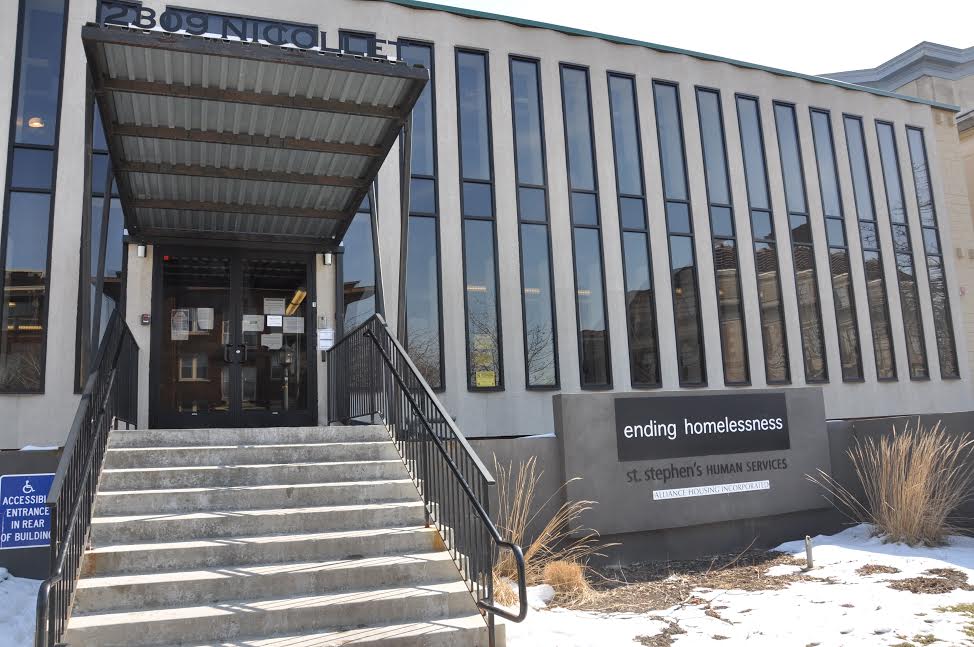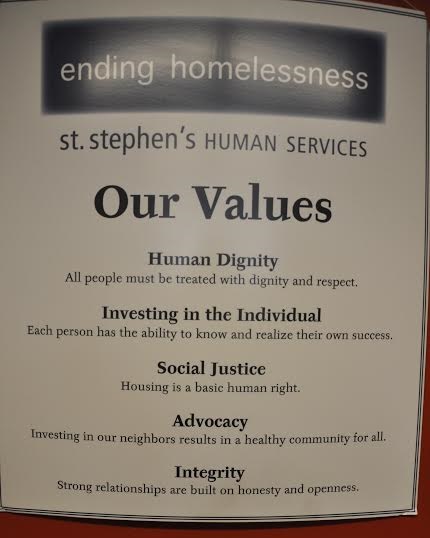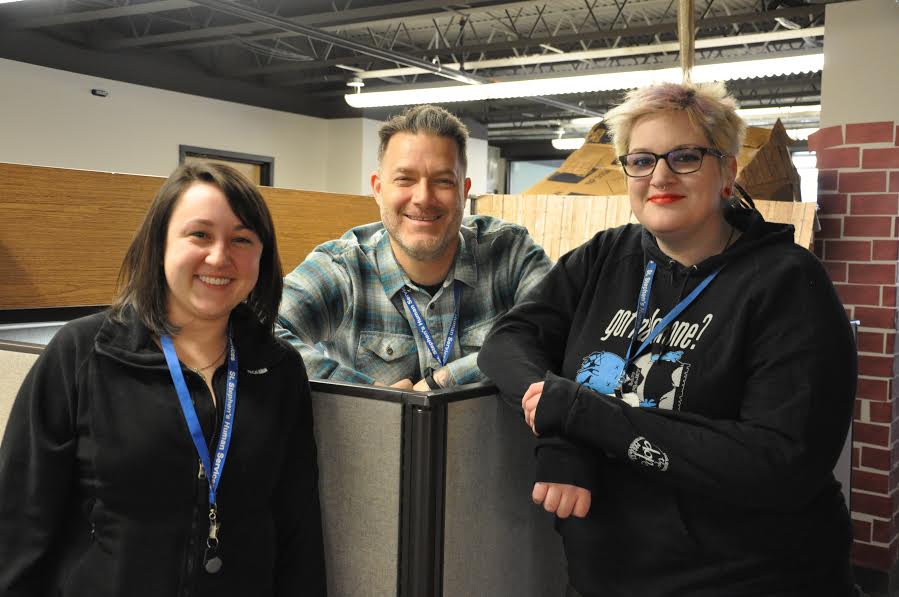Nonprofit Spotlight: Supportive Services for Veteran Families at St. Stephen’s
 Saturday, March 18, 2017 at 6:08PM |
Saturday, March 18, 2017 at 6:08PM |  Claudia Kittock |
Claudia Kittock | Article by Claudia Kittock, photos by Rick Kittock
Editor's note - This is the fifth in a series of articles spotlighting local nonprofits.
When my husband and I moved to downtown Minneapolis, I knew very little about homelessness. I had been part of helping a few college students who lost their housing, but that was in rural Minnesota where homelessness is completely hidden. My first exposure as a Minneapolis resident was at a meeting hosted by St. Stephen’s. I was incredulous. How could veterans be homeless? How can we live in a city with so much and yet have people who served our country living under bridge decks? It made no sense.
As my information grew, so did a realization that if I didn’t know, there were plenty of other people who didn’t know. Luckily for me, Mill City Times provides me with the chance to tell the stories I hear and to share the work of people who are devoted to ending homelessness in Minneapolis. I know it can be done as I have seen the plans. It needs to be done, and veteran homelessness is showing signs of real decline because of the great work being done by groups like St. Stephen’s.


I met Jeni Kuhfuss during a visit to St. Stephen’s to discuss the program they have for assisting veterans in finding housing and jobs. The Supportive Services for Veteran Families team was formed about three years ago with two outreach workers, and has expanded to offer a full range of services through the addition of Rapid Rehousing and Prevention Workers who can focus more on housing. Prevention workers assist veterans who are still housed, but are in danger of losing their housing. It is clear that prevention is far more effective than dealing with people who have already lost their housing.
 Jeni Kuhfuss, John Tribbett and Brit CulpThe Minnesota Assistance Council for Veterans (MACV) is a 501 (c)(3) nonprofit organization that has been assisting veterans for over 25 years. Each year MACV receives more than 25,000 contacts, inquiries and requests from veterans across the state. In 2014, MACV comprehensively served 1,810 veterans and their families throughout Minnesota who were homeless or experiencing a crisis that could lead to homelessness – and the need for services continues to rise. MACV did a unique thing by reaching out to service providers, like St. Stephens, who already were implementing best practices for homelessness outreach and housing services. They partnered with providers to ensure that veterans were targeted with these services already being implemented in the community, instead of reinventing the process.
Jeni Kuhfuss, John Tribbett and Brit CulpThe Minnesota Assistance Council for Veterans (MACV) is a 501 (c)(3) nonprofit organization that has been assisting veterans for over 25 years. Each year MACV receives more than 25,000 contacts, inquiries and requests from veterans across the state. In 2014, MACV comprehensively served 1,810 veterans and their families throughout Minnesota who were homeless or experiencing a crisis that could lead to homelessness – and the need for services continues to rise. MACV did a unique thing by reaching out to service providers, like St. Stephens, who already were implementing best practices for homelessness outreach and housing services. They partnered with providers to ensure that veterans were targeted with these services already being implemented in the community, instead of reinventing the process.
St. Stephen’s is just one of the groups that partner with MACV, and part of MACV’s success has been their willingness to share their expertise for providing services to veterans with the expertise of community agencies who have established best practices for working with the homeless population so that veterans are served well by both entities.
Justin, a veteran from the Vietnam era, explained how difficult life can be after serving in the military, particularly in a war. Life doesn’t make as much sense as it did, and the memories of things seen and experienced don’t go away. Relationships can be problematic, and maintaining employment tends to be an ongoing problem. However, as Justin asked, "Why are we still debating housing? Shouldn’t people who served their country have a place to sleep at night? It just doesn’t make sense!”
Michael, who served in Desert Storm, told me about the difficulties of reintegration. As he said, “I don’t know anyone who served their country and expects a handout. What we do need is help! Help with jobs, with training, with education, and finding a place to live that we can afford while we resettle our lives.”
The SSVF program is providing assistance for almost 150 veterans, and the most difficult problem is finding housing. It can take the professionals at St. Stephen’s as much as 2 months to find an apartment. As Jeni explained, “Housing is the start of the conversation.” Once someone has a place to sleep and to call home, the conversation can and does expand to other areas of life where help is needed. These conversations include issues of health, employment, and issues of chemical use and/or addiction. According to 2016 figures by the U.S. Department of Housing and Urban Development, the nation has cut homelessness among veterans by 47 percent since 2010. Minnesota identified 644 homeless veterans on a single night in 2010, and 279 in January 2016 - a 57% reduction.
Often the veterans are elderly. Since the beginning of 2017, according to SSVF data entry, about 52% of the veterans assisted are age 55 and older. The outreach workers are running into these veterans sleeping outside and in shelter, often finding that they need more than just housing services, but we can make a start with housing and then help them connect with other supports they may need.
What would ending homelessness look like? Experts agree that it would be when the support system in place could find housing and other types of support within a short period of time for every new person identified.
How can you help? There are many ways to support this work:
• Learn more about St. Stephen’s and the work they do.
• Volunteer
• Donations are important. Household items, kitchen supplies, toiletries and clothing are all welcome. They can be dropped off at St. Stephen’s at 2309 Nicollet Avenue.
• Advocate for legislation providing services for mental and chemical health.
Claudia can be reached at claudia@millcitytimes.org
